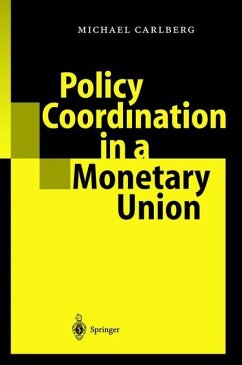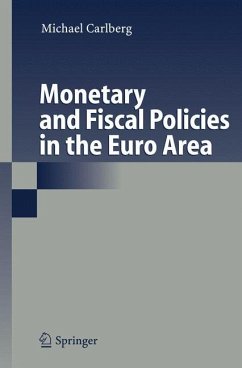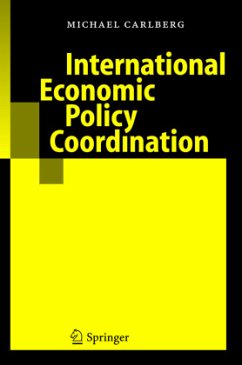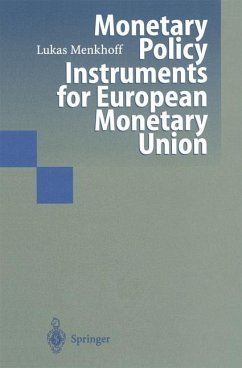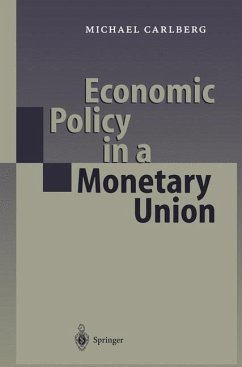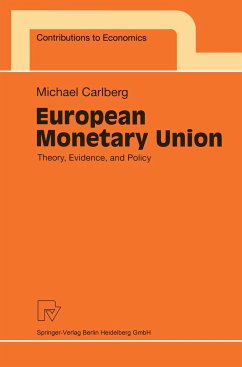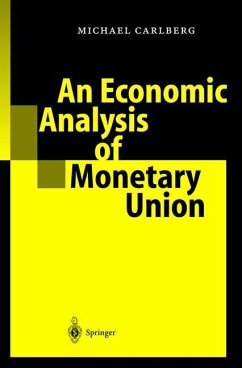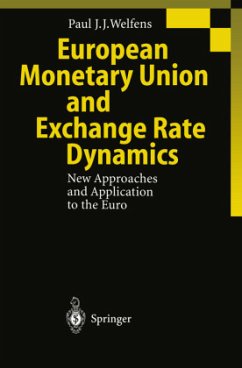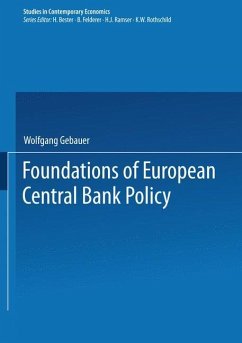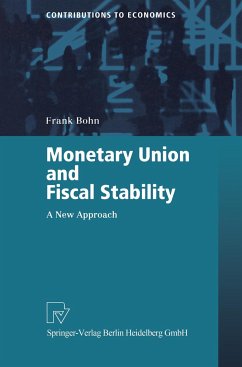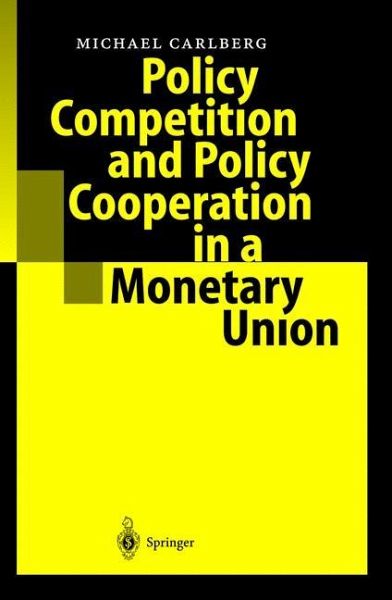
Policy Competition and Policy Cooperation in a Monetary Union
Versandkostenfrei!
Versandfertig in 1-2 Wochen
77,99 €
inkl. MwSt.
Weitere Ausgaben:

PAYBACK Punkte
39 °P sammeln!
This book studies the interactions between monetary and fiscal policies in the Euro area. The policy makers are the union central bank, the German government, the French government and other governments. The policy targets are price stability in the union, full employment in Germany, full employment in France, etc. The policy instruments are union money supply, German government purchases, French government purchases, etc. As a rule, the spillovers of fiscal policy are negative. The policy makers follow either cold-turkey or gradualist strategies. The policy decisions are taken sequentially or simultaneously. Policy expectations are adaptive or rational. This book carefully discusses the case for central bank independence and fiscal cooperation.
European monetary unification seems to be one of the most important events in international monetary affairs since the breakdown of Bretton Woods. It pos es a major challenge to central banks, governments, and labour unions. It opens up new fields of economic research that are both intriguing and fascinating. European Monetary Union amounts to a switch of regime. Surely the Mundell Fleming model of the open economy does no longer apply to Germany or France. The effects of shocks and policies on output and prices should have changed dramatically in size. Some of them should even work in the opposite direction now. The present book is part of a larger research project on monetary union, see Carlberg (1999, 2000, 2001, 2002, 2003). Some parts of this project were presented at the World Congress of the International Economic Association in Lisbon. Other parts were presented at the Macro Study Group of the German Economic Association, at the Annual Meeting of the Austrian Economic Association in Klagenfurt, at the Pass au Workshop on International Economics, at the Halle Workshop on Monetary Economics, and at the Research Seminar on Macroeconomics in Freiburg. Moreover, book reviews were published in the Economic Journal, Kyklos, the Journal of Economics, and the Journal of Economics and Statistics.





